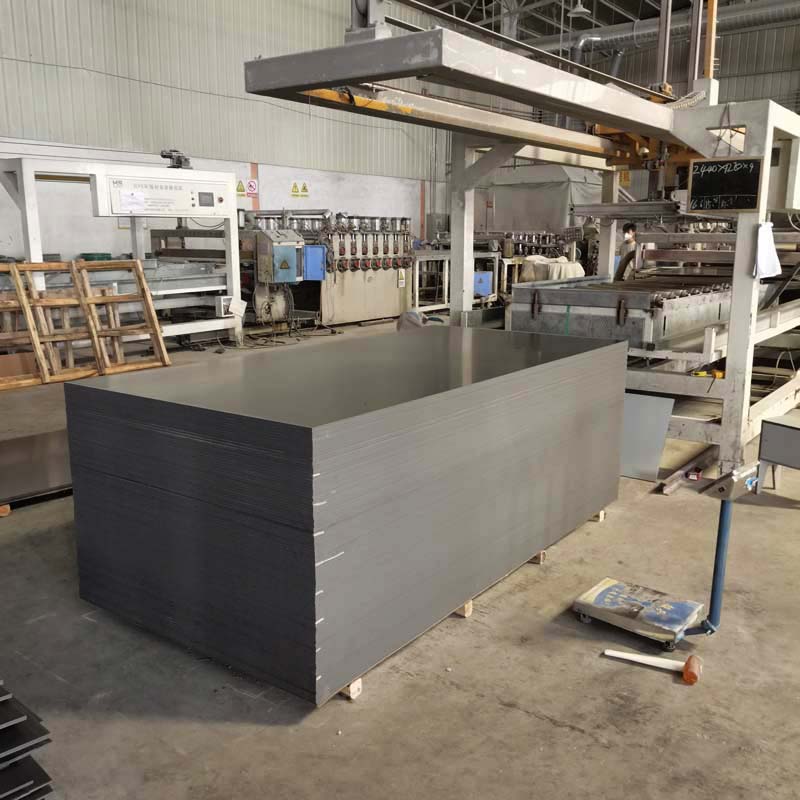Polyvinyl Chloride (PVC) sheet panel is a popular and versatile building material. PVC is a thermoplastic material that is often used in construction and other applications due to its durability, versatility, and low cost. PVC sheet panels have a wide range of uses, including in roofing, flooring, wall cladding, and ceiling panels, among others.
One of the main advantages of PVC sheet panels is their durability. PVC is a strong and long-lasting material that can withstand a range of environmental conditions, including moisture, UV rays, and extreme temperatures. This makes it an ideal material for use in a wide range of applications, including in areas where other materials may not be suitable.
Additionally, PVC sheet panels are easy to install and maintain. They can be cut to size and shaped to fit almost any application, and they require very little maintenance over their lifespan. This makes PVC sheet panels an attractive option for use in a range of construction projects, including in residential, commercial, and industrial buildings.
Another advantage of PVC sheet panels is their versatility. They can be used in a range of applications, from roofing and flooring to wall cladding and ceiling panels. PVC sheet panels are available in a range of colors, patterns, and textures, which means that they can be customized to suit the specific needs of each project.
PVC sheet panels are also environmentally friendly. They are a recyclable material, which means that they can be reused or repurposed at the end of their lifespan. Additionally, PVC sheet panels are energy-efficient, as they have a low thermal conductivity, which helps to reduce energy consumption in buildings.
Despite these advantages, there are also some drawbacks to using PVC sheet panels. One of the main concerns is that PVC is a plastic, and as such, it is not biodegradable. This means that it can take hundreds of years to break down in a landfill, which can have environmental impacts.

Another concern is that PVC can release toxic chemicals when it is burned or exposed to high temperatures. This can be a concern in the event of a fire, as the toxic fumes can pose a health hazard to those in the building.
In conclusion, PVC sheet panels are a popular and versatile building material that offers a range of benefits. They are durable, easy to install and maintain, and can be used in a wide range of applications. However, there are also some concerns regarding the environmental impact of PVC and its potential health risks. As such, it is important to weigh the benefits and drawbacks of PVC sheet panels carefully when considering their use in construction projects.
Previous: Enhance Your Furniture with Stunning White Veneer Sheets
Next: Stunningly Sleek: Elevate Your Décor with White Veneer Sheets

PVC foam board (wbt04)
1.product description PVC foam board is also called Chevron board or Andy board, its chemical composition is polyvinyl chloride, so it is also called foamed polyvinyl chloride board. It is widely used in passenger cars, train car roofs, box core laye...

PVC foam board (wbt010)
product description PVC foam board is also called Chevron board or Andy board, its chemical composition is polyvinyl chloride, so it is also called foamed polyvinyl chloride board. It is widely used in passenger cars, train car roofs, box core layers...

Carbon crystal plate
product description: What is the material of the carbon crystal plate? The carbon crystal plate is made of natural bamboo powder, calcium powder, new polymer composite material, carbon crystal powder and PVC powder. The raw materials do not contain f...

PVC foam board
PVC foam board is also called Chevron board or Andy board, its chemical composition is polyvinyl chloride, so it is also called foamed polyvinyl chloride board. It is widely used in passenger cars, train car roofs, box core layers, interior decoratio...